These 12 Retinol Creams Can Minimize Acne and Wrinkles in One Fell Swoop
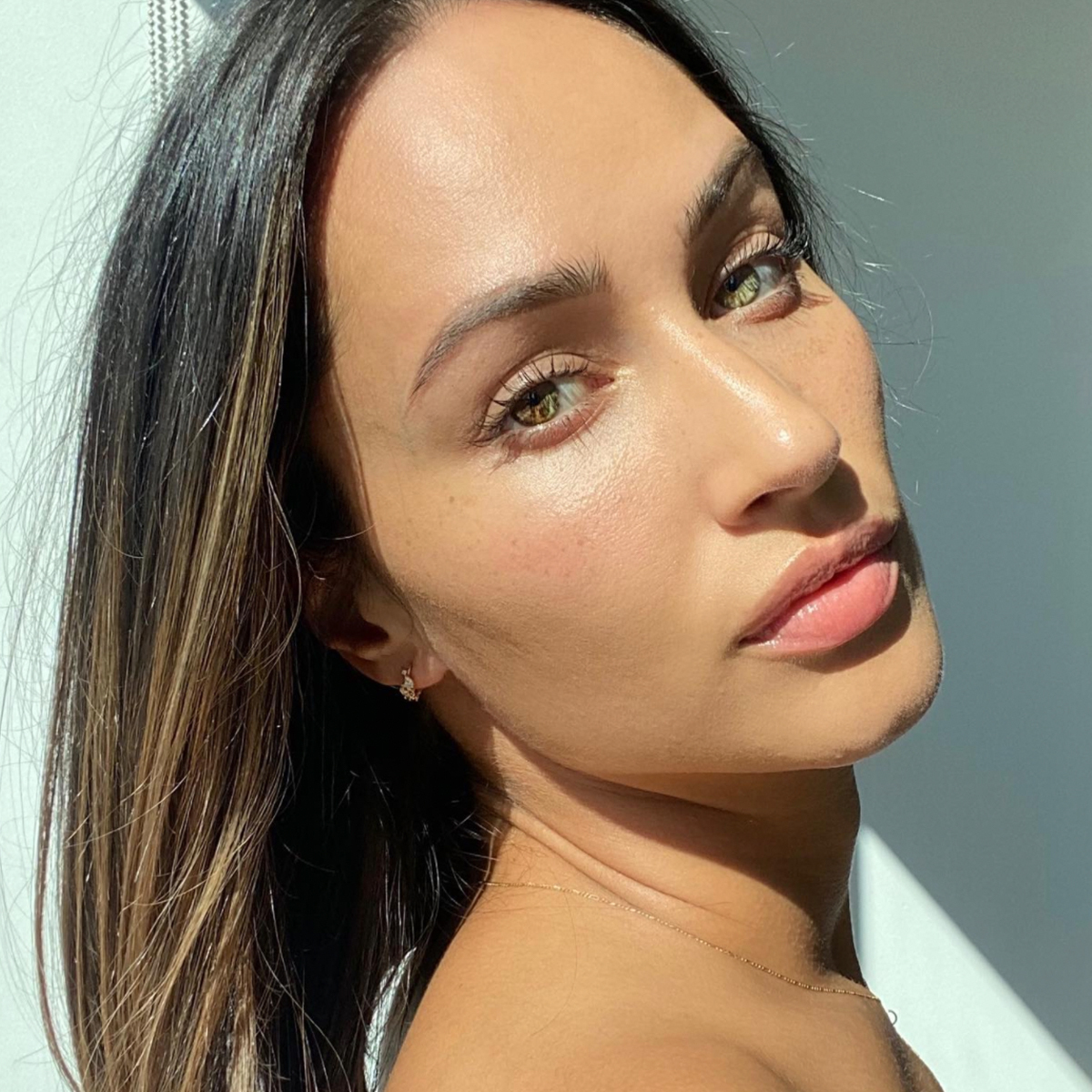
We love retinol, plain and simple. It's one of the most beloved skincare ingredients recommended by derms and astheticians alike for its youth-enhancing properties, but we also now know it to be the reigning champion of acne fighters.
With so many different formulas out there, it's such a relief to know there's one single ingredient that can decrease fine lines and wrinkles while also catering to one of the most common skincare struggles both teens and adults face. If you're curious about how retinol performs such sorcery, esteemed dermatologist Macrene Alexiades (founder of Macrene Actives) has the full rundown for you. "Retinol impacts cell turnover to the skin," she shares. "It reduces sebum activity, therefore working against acne. It also results in a peeling of the skin, causing a resurfacing effect that reduces wrinkles."
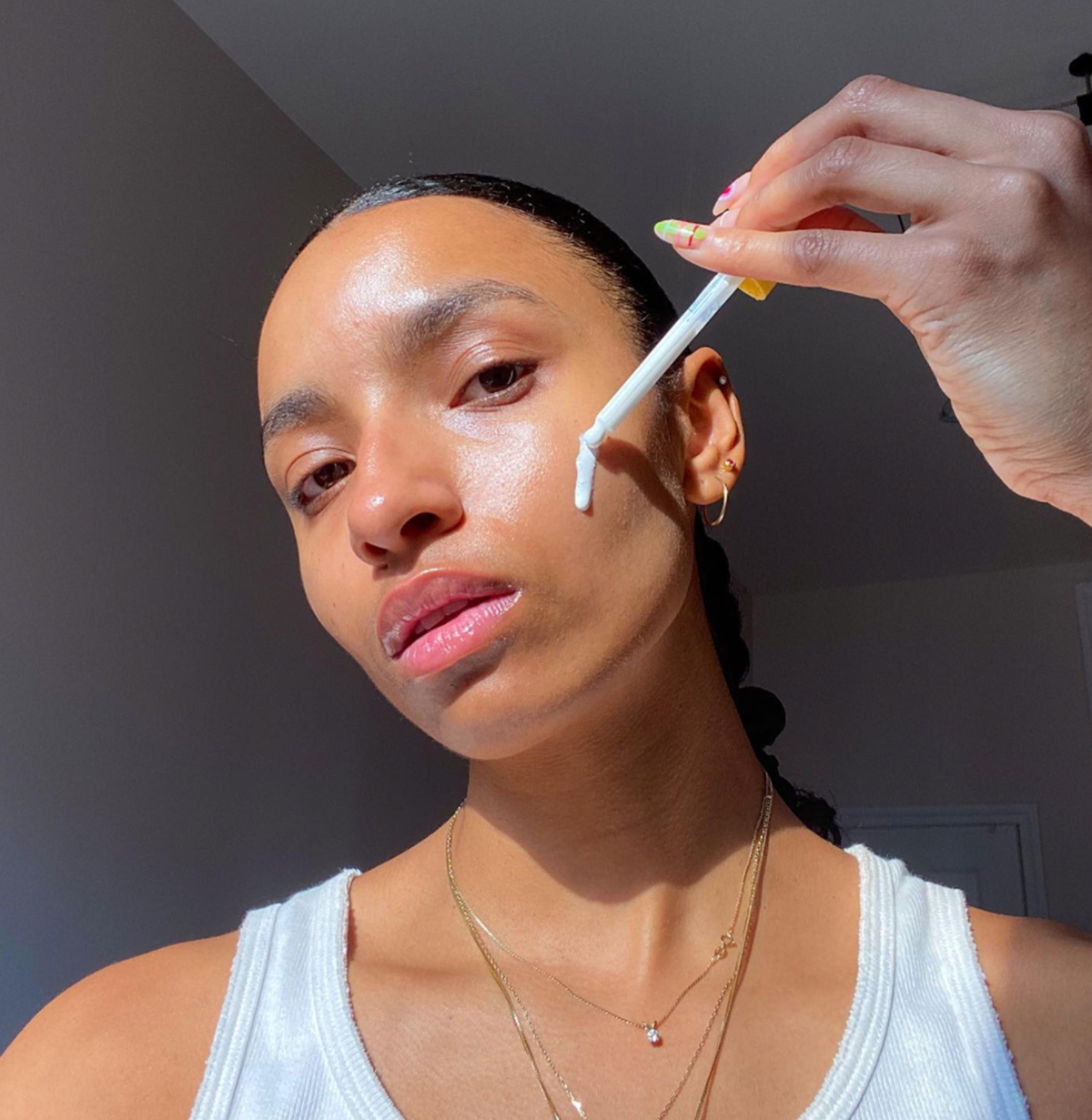
Although those with sensitive skin should use caution with ingredients like retinol, those with blemish-prone or oily skin are in luck. Alexiades says you're the perfect candidate for this powerhouse active. For anyone with enlarged pores looking for a way to reduce their appearance, you'll also majorly benefit. Ahead, take a look at a few of Alexiades's recommendations and a full range of the all-time best retinol creams for acne.
Best Overall: Medik8 Crystal Retinal
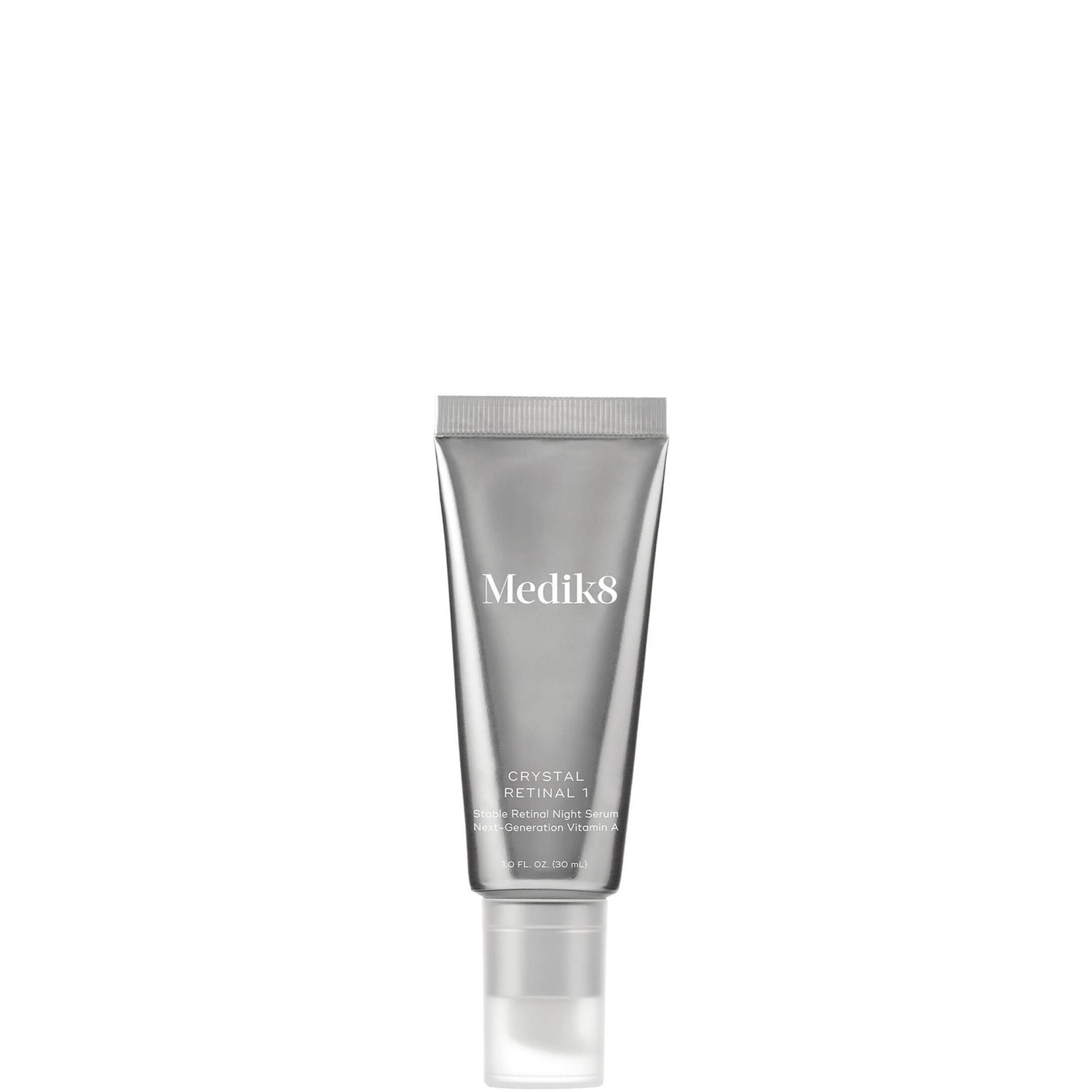
Pros: Little to no irritation, works quickly, matte formula great for oily skin and acne
Cons: Expensive
This is my all-time favorite retinol because it cleared up not only my acne but the post-inflammatory hyperpigmentation that comes along with it afterward. There's virtually no irritation, and it works so fast. I also love that it has customizable strengths. It starts at level one and goes all the way up to 20. I started with level one and gradually increased to 10, and that seems to be the perfect strength for clearing acne for me.
Customer review: "I love the Medik8 retinal 10 serum. My skin does not like tretinoin. I found the peeling even after I had used it on and off for years to be very annoying. I have never experienced any irritation or peeling with Medik8. My skin is softer and more radiant now."
Best for Sensitive Skin: Shani Darden Skin Care Retinol Reform
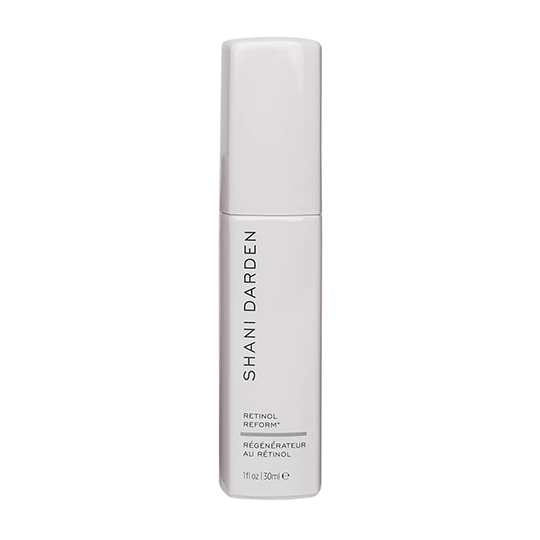
Pros: Gentle formula is great for sensitive skin, contains non-irritating encapsulated retinol, contains an AHA to retexturize skin
Cons: Expensive
Shani Darden's cult-favorite retinol improves radiance and the look of blemishes without over drying.
Customer review: "I have super sensitive skin and lately my skin became reallly reactive to any chemical exfoliate that i used to have no issue with. i had completely stopped using any treatment/serum but just cream for weeks but my skin is rough and dull and in desperate need of exfoliating. I have had this sitting on my vanity for a while now and decided to give it a try. I have used it every other night twice now and i can see a clear improvement of my skin texture and tone. So much smoother and clear and no reaction. I'm quite shocked for the quick result. I think the key is don't go over the amount instructed and must follow with a simple (no active ingredients )but rich moisturizer. There are a lot of moisturizers out there that have some BHA/AHA in there which you might not be aware of if you don't check the ingredients list carefully."
Best Drugstore: Differin Acne Treatment Gel
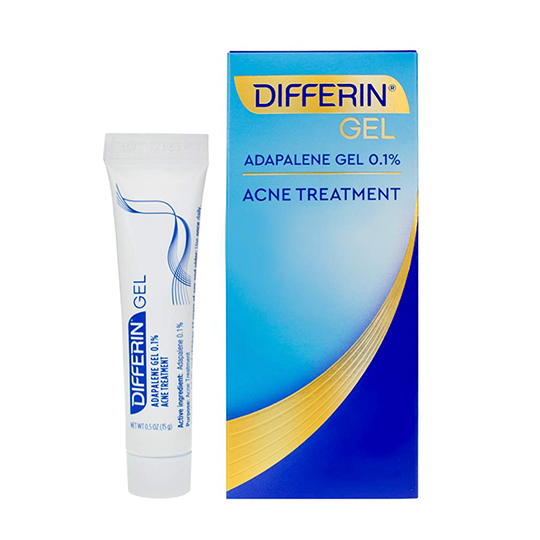
Pros: Budget-friendly, simple formula
Cons: May be too drying for some
This is a classic, no-frills expert pick. Alexiades, board-certified dermatologist Noah Gratch, and celebrity aesthetician Kristin Gunn love this classic retinol gel from Differin for acne treatment. It clears breakouts at the source (deep within the pores), prevents new acne from forming, and Gratch says it's less irritating than other retinols out there.
Customer review: "I get milia a little more often then normal and I tried EVERYTHING but nothing worked. UNTIL I started using this! It really works! I have been using it for a few days and the majority of my bumps are gone.My face is a little raw from using it back to back days so I wouldn’t recommend using it every day maybe just once every other or a couple times a week to start. Also, I found waiting for it to dry before putting moisturizer on helped both to soak in."
Best Expert-Recommended: SkinCeuticals Retinol 1.0
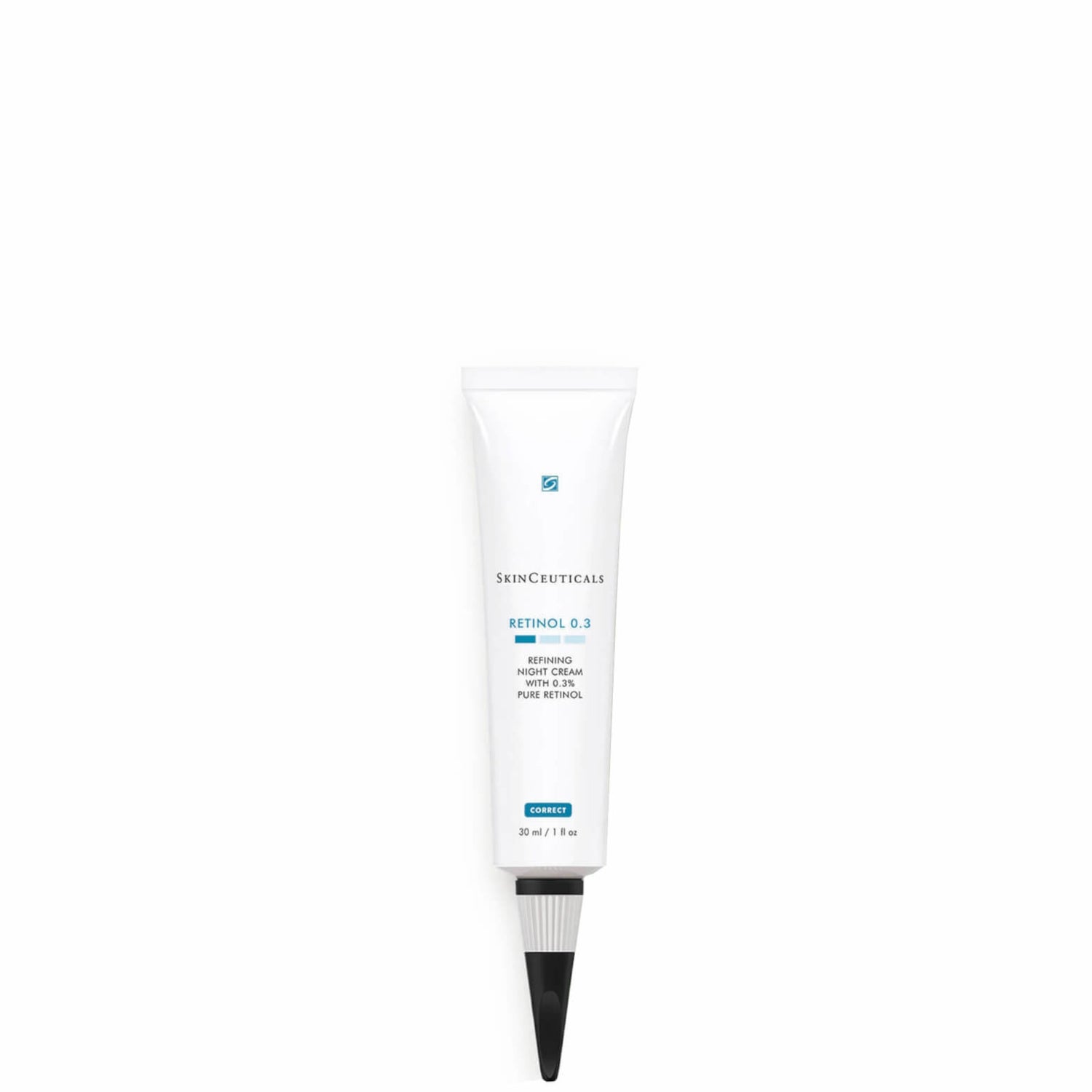
Pros: Improves fine lines, the look of pores, acne, and discoloration; dermatologist-loved formula
Cons: Expensive
C E Ferulic isn't the only A-1 product from SkinCeuticals. The brand's retinol is a powerful night cream that works overnight to reduce the appearance of fine lines, blemishes, and dark spots. It also alleviates inflammation and redness.
"This is a great choice for someone looking for a more advanced option. It contains 0.3% pure retinol, which is potent enough to tackle stubborn acne." — Gratch
Customer review: "Gentle and effective. I started using this Skinceuticals retinol every other night and ramped up to every night without major irritation or drying. I have noticed improvements to my skin texture and a decrease in blemishes. Was hoping for a bit more of an effect in the appearance of my pores but I may have to titrate up to the stronger concentrations for that. Still, great product and good bang for your buck -- the tube lasts a while."
Best for Dry Skin: Obagi Medical Retinol 1.0
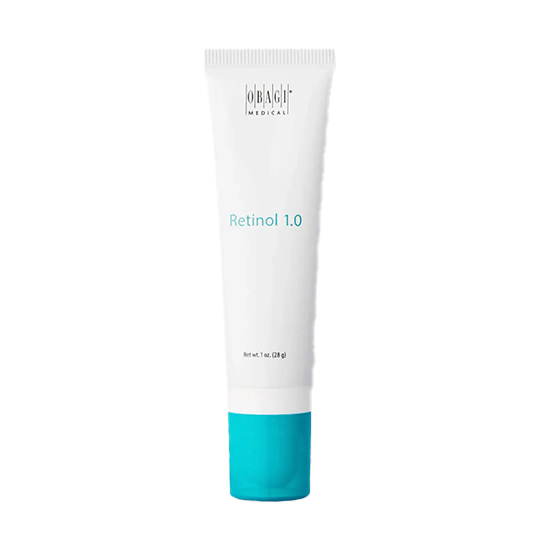
Pros: Contains hydrating ingredients like shea butter and jojoba oil, gentle yet effective formula
Cons: Expensive
Obagi is loved and revered by derms for its potent yet gentle formulas. It also contains jojoba oil to offset some of the dryness that can come with using a retinol cream.
Customer review: "This is my 4th tube Obagi retinol using. No more dullness, aging looking on my skin. Im using it mostly everyday. Love it."
Best Budget: The Inkey List Retinol Anti-Aging Serum
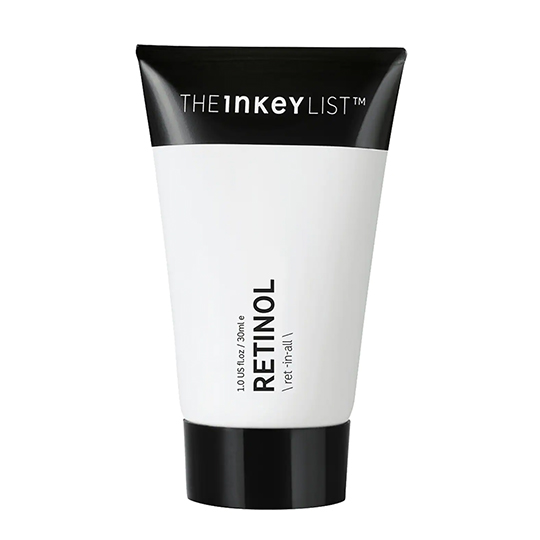
Pros: Budget-friendly, little to no irritation, contains hydrating ingredients like soy bean oil and squalane
Cons: May be too oily for some skin types
The Inkey List's retinol serum is a slow-releasing formula that delivers results with less irritation. It's a great option for sensitive skin and won't break the bank.
Customer review: "The best affordable retinol! I can definitely tell a difference after using it for a while and it’s not irritating to my dry skin."
Best for Mature Skin: Paula's Choice Clinical 1% Retinol Treatment
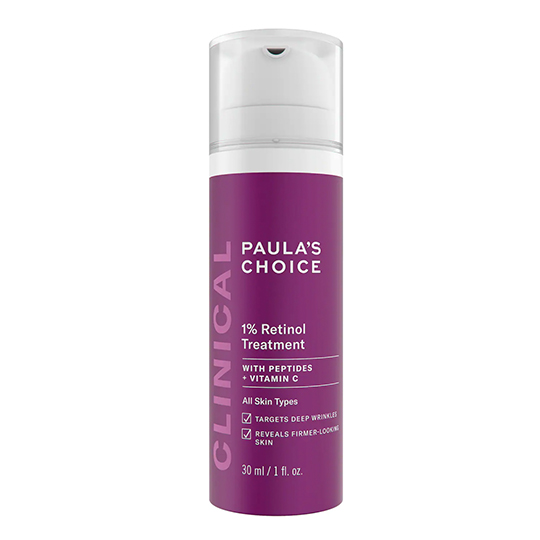
Pros: Contains retinol, vitamin C, and a triple peptide blend; oat, willow bark, and licorice extracts soothe the skin
Cons: May be too active for sensitive skin
This treatment has an almost-perfect five-star rating on Sephora for a reason. In addition to a hefty dose of retinol (1%), it contains vitamin C and a quadruple peptide blend to promote even brighter, firmer skin.
Customer review: "If you are not using a retinol in your skin care routine, you are seriously missing out and this one from Paula‘s Choice is a great option. I love that it’s actually 1 % so it is clinical strength like you could get from a dermatologist, but you could buy it at your local store. I’m in my late 30s and have been using retinol since I was in my late 20s but I’ve always been inconsistent with it but once I started to see the results I was getting from this retinal it’s made me want to use it continuously and consistently. My skin has never looked smoother and brighter. I’ve also noticed that some of the sagging I was having in my face has started to tighten up after using this consistently. I highly recommend this to anybody who’s wanting to use a retinol, but if it’s your first time, I would start by only using it a couple times a week."
Best for Oily and Rosacea-Prone Skin: IS Clinical Pro-Heal Serum Advanced Plus
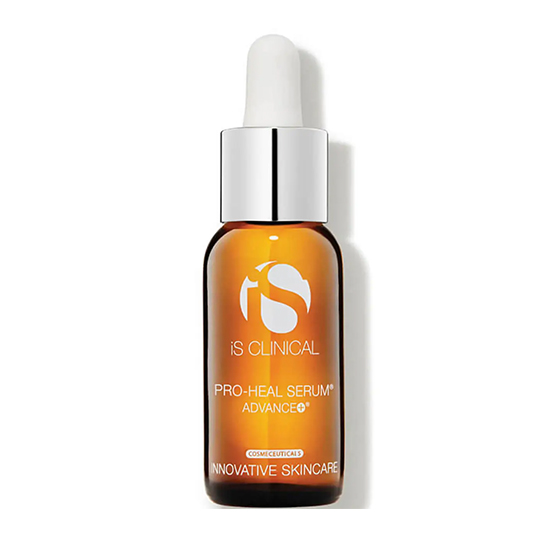
Pros: Gentle enough for rosacea-prone skin, brightens hyperpigmentation, and heals breakouts
Cons: Expensive
IS Clinical's powerful healing serum contains retinol, vitamin C, kojic acid, and a blend of botanicals to neutralize free radicals and reduce inflamed blemishes.
"This one is wonderful! This serum has medical-grade ingredients and a great dose of retinol. It also packs vitamin C, olive leaf extract, and vitamin E in the formula to minimize side effects. It's tough enough to fight acne but gentle enough for my rosacea prone patients. " — Gunn
Customer review: "I use this serum in conjunction with their active peel pad system. My skin has never looked smoother and, brighter. My hyperpigmentation has decreased since using this product and it leaves me with a beautiful dewy glow."
More Great Retinols for Acne
Renée Rouleau Advanced Resurfacing Serum
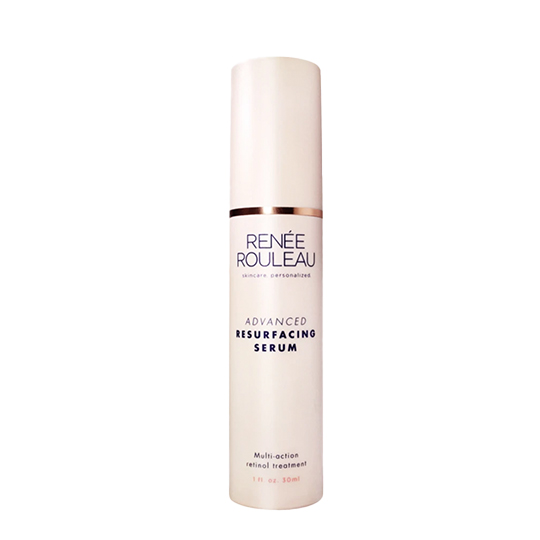
Pros: Repairs sun damage, lifts hyperpigmentation, clears breakouts, designed for sensitive skin
Cons: Expensive
Formulated by celebrity aesthetician Renée Rouleau, this pure retinol serum works well for sensitive skin and helps repair sun damage. It contains 0.4% retinol, so it's easier on skin that can't tolerate a prescription-strength product.
Customer review: "I've been using this retinol for a few years now. It's gentle but effective, and a little goes a long way. I use it on my face, neck, chest, and the backs of my hands. I noticed results almost immediately, and my skin has continued to smooth out over time. I'm still getting compliments, which always makes my day."
CeraVe Retinol Serum
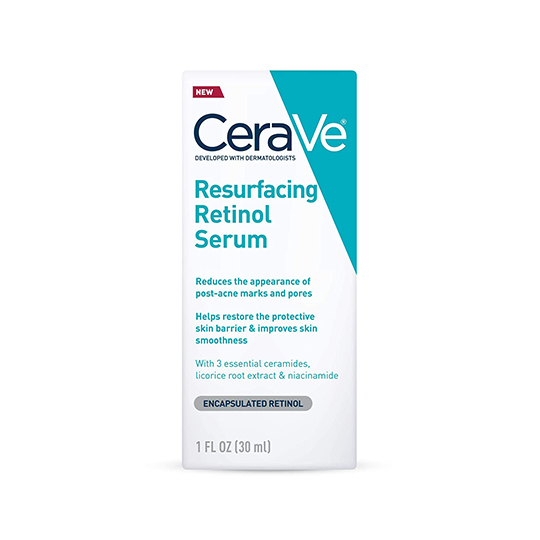
Pros: Budget-friendly, noncomedogenic, encapsulated retinol reduces irritation potential
Cons: Can cause irritation around the eye area if you have sensitive skin
CeraVe is another dermatologist favorite for its effective formulas that come at a drugstore price. This specific formula is great for both blemishes and the scarring it can leave behind.
Customer review: "Best retinol serum ever. My skin feels smooth and poreless after every aplication."
La Roche-Posay Pure Retinol Serum With Vitamin B3
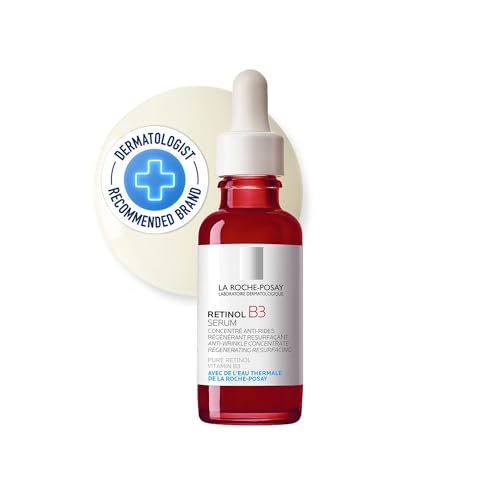
Pros: Contains retinol, vitamin B3, and hyaluronic acid to soothe, hydrate, and reduce breakouts; great for sensitive skin
Cons: Strong smell
"This is my all time fave! It’s wonderful for sensitive skin, packed with a potent retinol, niacinamide, and hyaluronic acid. La Roche-Posay is a trusted brand with great active ingredients and efficacy. If you were my sister, I’d tell you to get this one!" — Gunn
Customer review: "Let me tell you, this La Roche-Posay Retinol Serum is a game-changer! I've been using it for a while now, and my skin is seriously thanking me. It used to look a bit dull and tired, but now it's glowing I swear I can practically see the light reflecting off it! Plus, it feels amazing so soft and smooth, not tight or dry at all. Here's what really impressed me: My skin is rocking! It looks healthier and brighter, and those fine lines around my eyes seem less noticeable. Sensitive skin approved!..."
Avène Retrinal 0.1 Intensive Cream
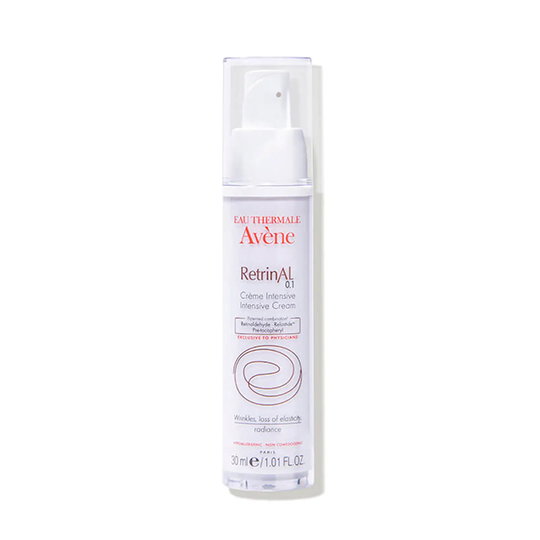
Pros: Contains a patented peptide that fills in fine lines and wrinkles, leaves skin radiant, reduces breakouts
Cons: Expensive
Avène Retinal 0.1 Intensive Cream visibly reduces the appearance of wrinkles to shave years off of your appearance. Patented relastide is a pro-elastin peptide that fills in wrinkles and fine lines to tone and firm your complexion while vitamin E reflects free radical damage and protects against damaging sunrays. Irregularities are reduced, leaving a radiantly youthful complexion in its wake.
Customer review: "I have very sensitive skin and I finally found a retinoid that I can tolerate. I use it every other day over my moisturizer and after three weeks, I notice a significant change in my skin."
FAQs
What should I look for in a retinol for acne?
I know your first instinct when dealing with breakouts is to start with a strong concentration of retinol, but pump the breaks. Experts say it's better to start slow, especially if you have sensitive skin. "When selecting a retinol cream for acne, look for a formula with a lower concentration of retinol to start," says Gratch. "Retinol works by increasing cell turnover, which helps clear pores and reduce acne breakouts. You also want a product that's noncomedogenic (won’t clog pores), ideally paired with soothing ingredients like hyaluronic acid or niacinamide to counterbalance potential dryness or irritation."
While there are plenty of different retinoids out there, Gunn also explained a few things about retinol in particular. She says, "Retinol (vitamin A) does wonders for acne by removing dirt, dead skin cells, and oil from pores. Quite often, acne is caused by clogged pores and all of the debris inside them. Retinol literally gets under your skin and penetrates the dermis. Retinol would be considered a medium-strength retinoid. It’s weaker than doctor-prescribed retin-A (tretinoin), but a great place to start as a treatment for acne. Typically this will do the trick! Look for a retinol with niacinamide in the mix. This will improve skin-barrier function and help calm the skin, lessening the likelihood of irritation. Vitamin C is a great additive too and will really help brighten your complexion."
What ingredients should I avoid when choosing a retinol for acne?
While ingredients like niacinamide, hyaluronic acid, and squalane pair well with this ingredient, Gratch says you'll want to avoid fragrance and maybe even silicones like dimethicone—depending on the severity of your acne and how sensitive your skin is. Sometimes, using too many actives paired with retinoids can also be a problem. Avoid using BHAs, AHAs, and other strong actives like glycolic acid, salicylic acid, and benzoyl peroxide at the same time as a retinol. Pairing these ingredients can sometimes exacerbate acne further and cause redness and irritation. NYC aesthetician Sofie Pavitt (also knows as the "acne whisperer") recommends using only one active at a time. If you exfoliate, only do that as your active one night and use your retinol as your one active another night.
How often should I use a retinol for acne?
Gratch recommends starting out by using a retinol once or twice a week if you're new to this ingredient. "Your skin needs time to adjust, as retinol can initially cause dryness, peeling, and irritation," he explains. "After a few weeks, if your skin tolerates it well, you can increase to nightly use. Consistency is key."
Gunn also has a bit of advice on how often to use it. "You want to work up to nightly use, but start every third day (after cleansing at night). You will want to slowly titrate your way up to every other day, then daily."
On the other hand, aesthetician Caroline Godsick doesn't recommend using a retinol every night, but suggests no more than three times a week so your skin isn't working overtime constantly. I've found that this is cadence works great for me, as I have sensitive, acne-prone skin. I use a retinoid three times a week and a gentle AHA like mandelic acid three times a week, and then one night a week, I just focus on hydration.
This article was originally published at an earlier date and has since been updated.
Shawna Hudson is a beauty, wellness, lifestyle, and travel writer with over 10 years of experience. She graduated from California State University, Fullerton, with a degree in journalism and has written for other publications such as Bustle, The Zoe Report, Byrdie, Elite Daily, and more. She is currently a beauty writer atBest Knockoff Luxury Clothing and hopes to continue feeding her (completely out-of-control) beauty obsession as long as she can. Stay up to date on her latest finds on Instagram @shawnasimonee.